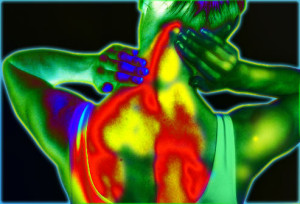
By John M. de Castro, Ph.D.
“The functional gastrointestinal disorders (FGIDs) are a group of more than 20 chronic and hard to treat medical conditions of the gastrointestinal tract that constitute a large proportion of the presenting problems seen in clinical gastroenterology.” – Jennifer Wolkin
Functional Gastrointestinal Disorders are the most common disorders of the gastrointestinal tract in the general population. The most common disorder in this group is Irritable Bowel Syndrome (IBS). Functional Gastrointestinal Disorders can involve the esophagus, stomach and/or intestines and are disorders of function (how these structures work), not structural or biochemical abnormalities. Estimates vary, but about 25% of people in the United States have one of these disorders. The conditions account for about 40% of GI problems seen by doctors and therapists.
The cause(s) of Functional Gastrointestinal Disorders are not known. But, emotion dysregulation is suspected to be involved. It is clear that psychological stress exacerbates the illnesses and anxiety amplifies the symptoms. This suggests that mindfulness or the lack thereof may be involved as mindfulness is known to be helpful in reducing the psychological and physical responses to stress and mindfulness is known to improve emotion regulation. In addition, contemplative practice has been shown to improve the symptoms of Irritable Bowel Syndrome. So, it would make sense to further investigate the relationship of mindfulness to emotion regulation, stress, and Functional Gastrointestinal Disorders.
In today’s Research News article “Difficulties in Emotion Regulation and Mindfulness in Psychological and Somatic Symptoms of Functional Gastrointestinal Disorders”
http://www.ncbi.nlm.nih.gov/pmc/articles/PMC4733315/
Mazaheri investigated the relationships between gastrointestinal symptoms, emotions, emotion regulation, and mindfulness in patients diagnosed with Functional Gastrointestinal Disorders. They found that the higher the levels of either depression, anxiety, or stress the greater the GI symptoms and that the lower the levels of emotion regulation the greater the symptoms. Significantly, they found that high levels of mindfulness were associated with lower levels of GI symptoms, depression, anxiety, and stress and with higher levels of emotion regulation.
The results support the contention that an inability to regulate emotions and stress are an important factor in Functional Gastrointestinal Disorders. In addition, they suggest that mindfulness is not only associated with lower levels of emotion and psychological stress but also with a greater ability to regulate these emotions. It should be noted that the results of this study are strictly observational and correlational and as such no conclusion about causation can be reached. But, the results give strong support to the need to perform a randomized controlled trial where mindfulness is trained and its effects on emotion regulation and Functional Gastrointestinal Disorders are measured.
With the caveat that causation hasn’t been established, it can be speculated that mindfulness training may be a safe and effective method for both the prevention and treatment of Functional Gastrointestinal Disorders. Mindfulness’ ability to improve emotion regulation may help the individual to be able to better experience emotions but respond to them in an effective and adaptive manner, lessening their impact. It remains for future research to investigate this exciting possibility.
So, improve gastrointestinal disorders with mindfulness.
“patients with heightened GI-specific anxiety may benefit from participation in a mindfulness programme as an adjunct to their usual clinical care.” – D. J. Kearney
CMCS – Center for Mindfulness and Contemplative Studies








